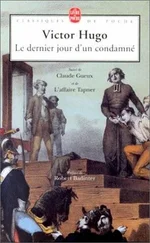Victor Hugo - Napoleon the Little
Здесь есть возможность читать онлайн «Victor Hugo - Napoleon the Little» — ознакомительный отрывок электронной книги совершенно бесплатно, а после прочтения отрывка купить полную версию. В некоторых случаях можно слушать аудио, скачать через торрент в формате fb2 и присутствует краткое содержание. Жанр: literature_19, foreign_antique, foreign_prose, на английском языке. Описание произведения, (предисловие) а так же отзывы посетителей доступны на портале библиотеки ЛибКат.
- Название:Napoleon the Little
- Автор:
- Жанр:
- Год:неизвестен
- ISBN:нет данных
- Рейтинг книги:3 / 5. Голосов: 1
-
Избранное:Добавить в избранное
- Отзывы:
-
Ваша оценка:
- 60
- 1
- 2
- 3
- 4
- 5
Napoleon the Little: краткое содержание, описание и аннотация
Предлагаем к чтению аннотацию, описание, краткое содержание или предисловие (зависит от того, что написал сам автор книги «Napoleon the Little»). Если вы не нашли необходимую информацию о книге — напишите в комментариях, мы постараемся отыскать её.
Napoleon the Little — читать онлайн ознакомительный отрывок
Ниже представлен текст книги, разбитый по страницам. Система сохранения места последней прочитанной страницы, позволяет с удобством читать онлайн бесплатно книгу «Napoleon the Little», без необходимости каждый раз заново искать на чём Вы остановились. Поставьте закладку, и сможете в любой момент перейти на страницу, на которой закончили чтение.
Интервал:
Закладка:
"We know what is meant by esprit-de-corps : this spirit will urge the Senate by every possible means to augment its power. It will destroy the Corps Législatif, if it can; and if occasion offers it will compound with the Bourbons."
Who said this? The First Consul. Where? At the Tuileries, in April, 1804.
"Without title or authority, and in violation of every principle, it has surrendered the country and consummated its ruin. It has been the plaything of eminent intriguers; I know of no body which ought to appear in history with greater ignominy than the Senate."
Who said this? The Emperor. Where? At St. Helena.
There is actually then a senate in the "Constitution of January 14." But, candidly speaking, this is a mistake; for now that public hygiene has made some progress, we are accustomed to see the public highway better kept. After the Senate of the Empire, we thought that no more senates would be mixed up with Constitutions.
III
THE COUNCIL OF STATE AND THE CORPS LÉGISLATIF
There is also a Council of State and a Corps Législatif: the former joyous, well paid, plump, rosy, fat, and fresh, with a sharp eye, a red ear, a voluble tongue, a sword by its side, a belly, and embroidered in gold; the Corps Législatif, pale, meagre, sad, and embroidered in silver. The Council of State comes and goes, enters and exits, returns, rules, disposes, decides, settles, and decrees, and sees Louis Napoleon face to face. The Corps Législatif, on the contrary, walks on tiptoe, fumbles with its hat, puts its finger to its lips, smiles humbly, sits on the corner of its chair, and speaks only when questioned. Its words being naturally obscene, the public journals are forbidden to make the slightest allusion to them. The Corps Législatif passes laws and votes taxes by Article 39; and when, fancying it has occasion for some instruction, some detail, some figures, or some explanation, it presents itself, hat in hand, at the door of the departments to consult the ministers, the usher receives it in the antechamber, and with a roar of laughter, gives it a fillip on the nose. Such are the duties of the Corps Législatif.
Let us state, however, that this melancholy position began, in June, 1852, to extort some sighs from the sorrowful personages who form a portion of the concern. The report of the commission on the budget will remain in the memory of men, as one of the most heart-rending masterpieces of the plaintive style. Let us repeat those gentle accents: —
"Formerly, as you know, the necessary communications in such cases were carried on directly between the commissioners and the ministers. It was to the latter that they addressed themselves to obtain the documents indispensable to the discussion of affairs; and the ministers even came personally, with the heads of their several departments, to give verbal explanations, frequently sufficient to preclude the necessity of further discussion; and the resolutions formed by the commission on the budget after they had heard them, were submitted direct to the Chamber.
"But now we can have no communication with the government except through the medium of the Council of State, which, being the confidant and the organ of its own ideas, has alone the right of transmitting to the Corps Législatif the documents which, in its turn, it receives from the ministers.
"In a word, for written reports, as well as for verbal communications, the government commissioners have superseded the ministers, with whom, however, they must have a preliminary understanding.
"With respect to the modifications which the commission might wish to propose, whether by the adoption of amendments presented by the deputies, or from its own examination of the budget, they must, before you are called upon to consider them, be sent to the Council of State, there to undergo discussion.
"There (it is impossible not to notice it) those modifications have no interpreters, no official defenders.
"This mode of procedure appears to be derived from the Constitution itself; and if we speak of the matter now , it is solely to prove to you that it must occasion delays in accomplishing the task imposed upon the commission on the budget." 20 20 Report of the commission on the budget of the Corps Législatif, June, 1852.
Reproach was never so mildly uttered; it is impossible to receive more chastely and more gracefully, what M. Bonaparte, in his autocratic style, calls "guarantees of calmness," 21 21 Preamble of the Constitution.
but what Molière, with the license of a great writer, denominates "kicks." 22 22 See Les Fourberies de Scapin .
Thus, in the shop where laws and budgets are manufactured, there is a master of the house, the Council of State, and a servant, the Corps Législatif. According to the terms of the "Constitution," who is it that appoints the master of the house? M. Bonaparte. Who appoints the servant? The nation. That is as it should be.
IV
THE FINANCES
Let it be observed that, under the shadow of these "wise institutions," and thanks to the coup d'état , which, as is well known, has re-established order, the finances, the public safety, and public prosperity, the budget, by the admission of M. Gouin, shows a deficit of 123,000,000 francs.
As for commercial activity since the coup d'état , as for the prosperity of trade, as for the revival of business, in order to appreciate them it is enough to reject words and have recourse to figures. On this point, the following statement is official and decisive: the discounts of the Bank of France produced during the first half of 1852, only 589,502fr. 62c. at the central bank; while the profits of the branch establishments have risen only to 651,108fr. 7c. This appears from the half-yearly report of the Bank itself.
M. Bonaparte, however, does not trouble himself with taxation. Some fine morning he wakes and yawns, rubs his eyes, takes his pen and decrees – what? The budget. Achmet III. was once desirous of levying taxes according to his own fancy. – "Invincible lord," said his Vizier to him, "your subjects cannot be taxed beyond what is prescribed by the law and the prophet."
This identical M. Bonaparte, when at Ham, wrote as follows: —
"If the sums levied each year on the inhabitants generally are employed for unproductive purposes, such as creating useless places, raising sterile monuments, and maintaining in the midst of profound peace a more expensive army than that which conquered at Austerlitz , taxation becomes in such case an overwhelming burden; it exhausts the country, it takes without any return." 23 23 Extinction of Pauperism , page 10.
With reference to this word budget an observation occurs to us. In this present year 1852, the bishops and the judges of the Cour de Cassation , 24 24 Court of Appeal.
have 50 francs per diem; the archbishops, the councillors of state, the first presidents, and the procureurs-general, have each 69 francs per diem; the senators, the prefects, and the generals of division receive 83 francs each per diem; the presidents of sections of the Council of State 222 francs per diem; the ministers 252 francs per diem; Monseigneur the Prince-President, comprising of course, in his salary, the sum for maintenance of the royal residences, receives per diem 44,444 francs, 44 centimes. The revolution of the 2nd of December was made against the Twenty-five Francs!
V
THE LIBERTY OF THE PRESS
We have now seen what the legislature is, what the administration, and what the budget.
And the courts! What was formerly called the Cour de Cassation is no longer anything more than a record office of councils of war. A soldier steps out of the guard-house and writes in the margin of the book of the law, I will , or I will not . In all directions the corporal gives the order, and the magistrate countersigns it. Come! tuck up your gowns and begone, or else – Hence these abominable trials, sentences, and condemnations. What a sorry spectacle is that troop of judges, with hanging heads and bent backs, driven with the butt end of the musket into baseness and iniquity!
Читать дальшеИнтервал:
Закладка:
Похожие книги на «Napoleon the Little»
Представляем Вашему вниманию похожие книги на «Napoleon the Little» списком для выбора. Мы отобрали схожую по названию и смыслу литературу в надежде предоставить читателям больше вариантов отыскать новые, интересные, ещё непрочитанные произведения.
Обсуждение, отзывы о книге «Napoleon the Little» и просто собственные мнения читателей. Оставьте ваши комментарии, напишите, что Вы думаете о произведении, его смысле или главных героях. Укажите что конкретно понравилось, а что нет, и почему Вы так считаете.












